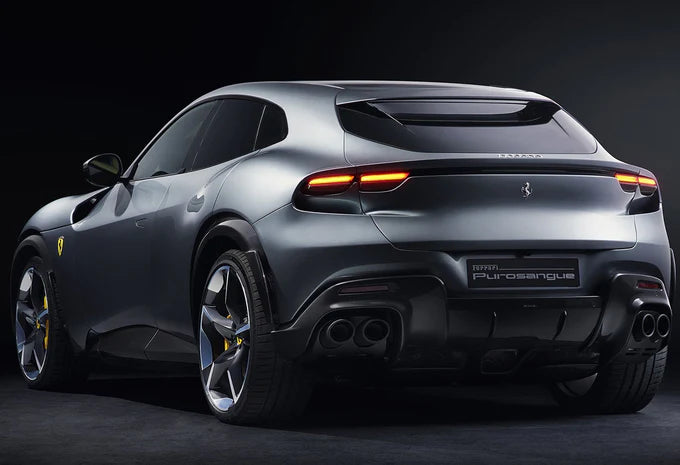Ferrari Purosangue SUV has no navigation, just CarPlay and Android Auto

Inevitably, automakers will eventually abandon their own navigation systems in favor of smartphones running Apple CarPlay and Android Auto. But no one would have guessed that Ferrari would be the first to wisely accept defeat, and that's with its brand new Purosangue.
Faced with fierce competition from smartphone apps and in-car systems like Android Auto and the next generation of Apple CarPlay, automakers should give up and stop creating their own infotainment systems when they fall behind, not to mention the many shortages that exist today, of course.
While Ferrari hasn't gone that far - the Purosangue can still play music and radio via its own entertainment system without having to connect a phone - it will leave the Maranello factory without its own navigation system.
This is a very good thing. While they seemed to belong to the space age when they first arrived en masse a couple of decades ago, in-car navigation systems have failed to keep pace with the smartphones in our pockets. These road missiles really did have a totally outdated onboard system. The Purosangue, the first of its kind in terms of a Ferrari SUV, will also be the first to benefit from the full Carplay system.
Lower resolution and slower responsive screens, slower internet connections, less intelligent voice recognition systems, and years of inability to update without plugging in a computer at the dealership have led to the slow but inevitable death of car navigation systems.
But despite the apparent death, few would bet on Ferrari being the first to turn the corner with so much innovation.

Ferrari product manager Gianmaria Fulgenzi said about the Purosangue in an interview with Automoto: "No matter what navigation system we install in the car, it will not be more advanced or advanced than a cell phone". Totally true!
Of course, the lack of navigation could also have something to do with a global chip shortage, which is still crippling automakers' ability to build cars with all the optional features installed in the factory.
Assuming this was a completely deliberate decision, it's refreshing to see the automaker thinking so clearly. Instead of talking incessantly about an inappropriate mapping system, without blindly and deliberately ignoring the capabilities of a smartphone, accept that Ferrari's vast amounts of brainpower are better spent on the chassis and V12 engine to outwit Aston Martin and Lamborghini instead of writing code to beat Apple and Google.
Many other manufacturers should follow suit, and I think they will very soon. Some are already replacing their own voice recognition systems with Amazon Alexa and Google Assistant - the latest Range Rover and Range Rover Sport use the former, for example.
At a recent press event for another premium SUV, the automaker encouraged journalists to use Google Maps on its USB-connected smartphones, rather than on the car's system.
Soon, as an upgraded version of the Volkswagen Up, which comes with a dashboard-style smartphone dock instead of a screen, the automaker will adopt a BYOD (bring your own device) policy.
Then they can stop trying to keep up with Silicon Valley and focus on truly seamless phone connectivity. This will require some obvious features that are often still missing, such as Apple CarPlay and Android Auto wirelessly in every vehicle, and most importantly, safe, reliable, cooled wireless charging stations to keep smartphones from overheating. .
Cars and smartphones can work together in perfect harmony and symbiosis. It is the user's comfort that is at the center of everyone's interest.


Share:
Carplay installation tutorial on a Dodge Challenger SRT
How to disable airplay?